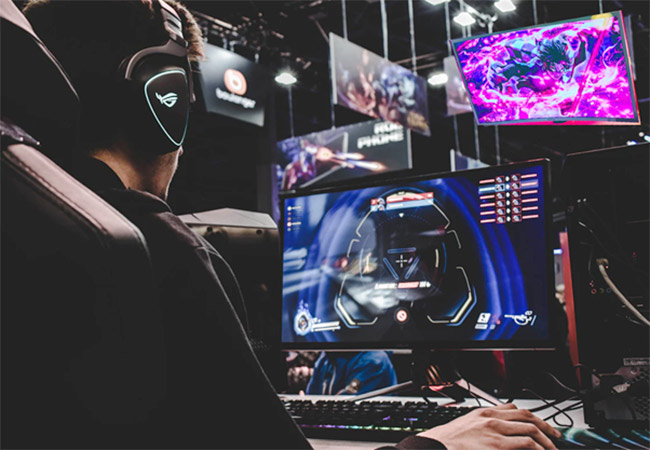Metaverse: A Virtual World
Author: Aprajita Archy
Metaverse is a futuristic digital world where people get chances to immerse in virtual and augmented versions of reality through their digital avatars. Meta basically means ‘beyond’ and verse implies universe.

Background:
The term ‘Metaverse’ for the first time was mentioned in 1992 in a science fiction novel ‘Snow Crash’ by Neal Stephenson where people had used their digital avatars to explore the online world. Many movies such as ‘The Matrix’ & ‘Ready Player One’ have also explored this concept.
How is Metaverse different from the Internet?
The present form of the internet is two-dimensional (2D), whereas Metaverse is in 3D (three- dimensional). Just like the internet, Metaverse will be an Open platform and will include both Physical & Virtual Worlds. Metaverse will let users socialize, learn, collaborate and interact in 3D virtual spaces going beyond our imagination leading to evolution of social connection. Using Metaverse, you can meet your friend in Mumbai though he may be physically present in Australia or you can walk on moon while you are physically present on earth via your digital avatars.
Metaverse and the Real World
Many companies have already started a series of initiatives to promote this technology. Microsoft’s HoloLens, PlayStation’s VR helmets, Facebook’s own Oculus, Alibaba’s Ali Metaverse are some of them. Recently, Facebook has changed its name to ‘meta’ to align the company with its ambitions to build the Metaverse. A very famous clothing brand, Zara, has launched their collection in the virtual environment that has the same prices as its physical stores. Many other fashion companies like Dolce & Gabbana, Gucci, Adidas and Nike have also started exploring their scope in metaverse.

Potential of Metaverse
- Software Industry: Metaverse has huge scope in the development of software applications to support the metaverse ecosystem.
- Hardware Industry: Facebook CEO Mark Zuckerberg believes augmented reality glasses will eventually be as widespread as smartphones.
- Immersive Learning: It’s a training methodology that uses Virtual Reality (VR) to simulate real world scenarios and train students in a safe and engaging immersive training environment. Metaverse can contribute to it widely.
- Non-Fungible Tokens (NFTs): The claim of ownership for unique, non-interchangeable digital assets that is stored on a blockchain can be widely adopted.
- Crypto Currency: Crypto Currency is another aspect of Virtual Universe that has been successfully realized, and it will be part of the new Metaverse world order where all the services will be offered in exchange of crypto.
Challenges at Present
- Metaverse requires technologies and infrastructure that currently does not exist. The current form of the internet and its bandwidth is limited in their design to hold the 3D digital space.
- Metaverse will also require a complex set of standards and protocols compared to the traditional internet. Thus, technology companies will need to prepare themselves for it.
- Data protection is another important challenge, as wide consensus on data security and persistence will be harder to establish.
- This virtual universe will altogether need new rules for censorship, control of communications, regulatory enforcement and prevention of online radicalization.
Conclusion
Metaverse is a revolutionary idea with huge economic value. According to a report by Bloomberg Intelligence, this digital environment has such excellent economic prospects that it is expected to reach 800 billion by the middle of this decade, and by 2030 that figure is expected to multiply to 2.5 trillion. Currently we are in a proto-verse, where there are several independent virtual worlds, but they are not connected to each other. India has a massive role to play in leading the metaverse revolution. With its 2nd ranking in terms of Internet user base (World Population review 2021 report), it can offer a rich global market hub.

Aprajita Archy A Software testing & development specialist, graduated in Computer Science engineering, interested in exploring various technologies and vibrant domains of Computers. Certified in Microsoft Technology Associate & Ethical Hacking AIESEC IIT Kharagpur. Also have experience in API Testing, Database Testing & Testing of Various tools related to Telecom Domain.



